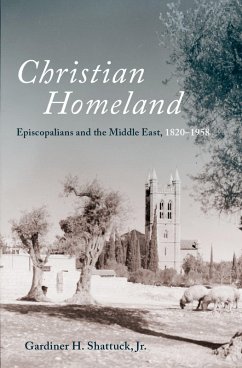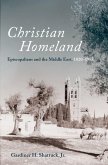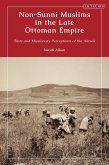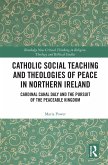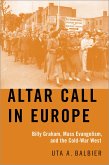Christian Homeland focuses on the involvement of clergy and prominent laity of the Episcopal Church in Middle Eastern affairs, both religious and political, between the Greek War of Independence (1821-1829) and the Second Arab-Israeli War (1956-1957), with a brief epilogue covering additional events up to the present day. As the birthplace of the Christian faith, the Middle East had always been an area of fascination to church people in the West, and with the expansion of American diplomatic and commercial interests into the Mediterranean in the early nineteenth century, Episcopalians and other American Protestants felt called to similarly export their religious values into the region. Beginning in the 1830s, Episcopalians established mission posts in Athens and Constantinople (Istanbul), from which they sought to convert Muslims and Jews to Christianity. Having failed to achieve any appreciable evangelistic success with non-Christians, they soon turned their attention to reforming the ancient churches of the East instead. Later assisted by the Church of England's missionary bishopric in Jerusalem, a small, but influential corps of Episcopalians dedicated themselves to keeping church members informed about the Middle East, particularly the status of the region's Christian population, well into the twentieth century. This book analyses how the theological ideas held by Episcopal church leaders not only guided missionary and religious activities, but also influenced their denomination's response to major social and political questions of the late nineteenth and early twentieth centuries issues such as immigration into the United States, genocide, wartime refugee relief, anti-Semitism, Zionism, and the Palestinian Nakba.
Dieser Download kann aus rechtlichen Gründen nur mit Rechnungsadresse in A, B, BG, CY, CZ, D, DK, EW, E, FIN, F, GR, HR, H, IRL, I, LT, L, LR, M, NL, PL, P, R, S, SLO, SK ausgeliefert werden.

